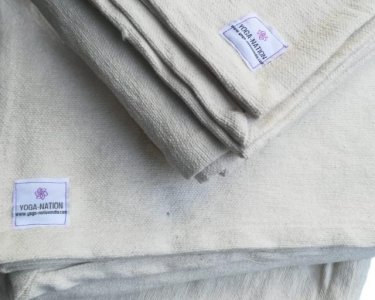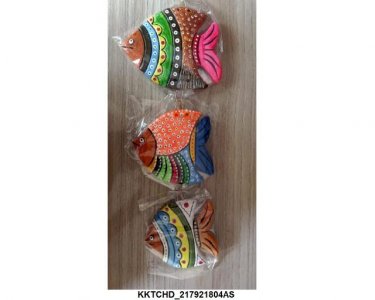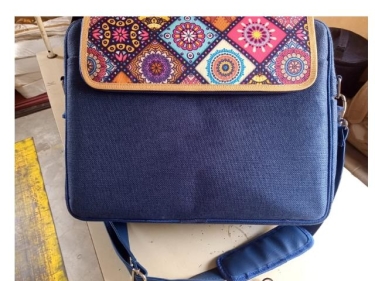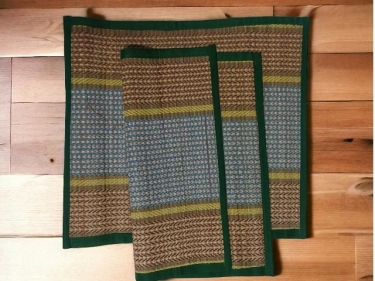Search Results for "togo" in "Togo" on Export Portal
Active Filters
-
Keywords:
-
Country:
- Clear all
New Search
Couldn't find the product you want?
Fill out this form to request the product.
Exports

Togo is a member of the Organization for the Harmonization of Business Law in Africa (OHADA). Cocoa, coffee, and cotton generate about 40% of export earnings with cotton being the most important cash crop. Togo is among the world's largest producers of phosphate and seeks to develop its carbonate phosphate reserves. The government's decade-long effort, supported by the World Bank and the IMF, to implement economic reform measures, encourage foreign investment, and bring revenues in line with expenditures has moved slowly. Progress depends on follow through on privatization, increased openness in government financial operations, progress toward legislative elections, and continued support from foreign donors.
Subsistence agriculture is the main economic activity in Togo; the majority of the population depends on subsistence agriculture. Food and cash crop production employs the majority of the labor force and contributes about 42% to the gross domestic product (GDP). Coffee and cocoa are traditionally the major cash crops for export. In the industrial sector, phosphates are Togo's most important commodity, and the country has an estimated 60 million metric tons of phosphate reserves.
Togo is a known exporter of crops such as coffee, cocoa, maize and cotton (50 percent of total exports). In recent years, limestone, marble and phosphate became important part of Togo’s exports.
Togo’s main export partners include Burkina Faso, China, France, Germany, Niger and Ghana.
Customs requirements of Togo
Togo Customs Contacts
Website: http://www.douanes.tg/
Address: DELMAS TOGO CMA CGM group, ZI Port Autonome -Angle de rue B1 et D10, 6 BP/ 60740 6, Lomé, Togo
Telephone: +2282275793
Togo is a country in West Africa bordered by Ghana, Benin and Burkina Faso. The capital is Lomé. Togo is one of the smallest countries in Africa, with a population of approximately 6.7 million. Togo is a tropical, sub-Saharan nation, highly dependent on agriculture, with a climate that provides good growing seasons. The official language is French, with many other languages spoken in Togo, particularly those of the Gbe family. Togo is a member of the United Nations, African Union, Organisation of Islamic Cooperation, South Atlantic Peace and Cooperation Zone, La Francophonie and Economic Community of West African States.
Export Procedures
Goods exported from Togo offshore require a simple authorization of the Directorate responsible for foreign trade. However, export of gold, diamond or any other precious metals is submitted to prior sign off of the Ministry responsible for finance.
Unlike imports, exports are not subject to inspection on embarkation.
Issuance of the import intention (DPI)
It is automatically issued upon request by the Office of Foreign Trade without any quality and value restriction. It is valid for six (6) months and renewable just once for a three month period after renewal.
Receipt of the certificate of orgin
The certificate of origin enclosed to the imported goods should be submitted to the customs for the goods to be exempted from import charges as agreed.
Quality inspection of imported goods
The following documents are requested:
- The importation intention;
- Two copies of the invoice;
- Domiciliation of the transaction with a bank liable to act as the authorized intermediary bank in line with the exchange regulations.
Inspection is made of the following steps:
- Notification from the importer of the inspection decision to the seller;
- Notification from the seller to the inspection company;
- Submission of goods for inspection by the seller to the inspection officers;
- Submission of the final invoice with the bill of lading where applicable or the airway bill, (LTA), and the packing list ;
- Payment of the declared 1% FOB value fee due to the customs office by the importer;
- Payment of goods submission charges (empacking, repacking, handling, testing, waste of time, etc.).
The outcome of the inspection results in:
- Affixing of « Safety Label» on a copy of the final invoice;
- Inspection result notification (ARI) to the importer;
- Issuance of an inspection certificate (AV) or of a ‘’denial notification certificate’’ on a safety type paper through which the customs office notifies the kind of goods (tariff position and name of products), FOB value or currency reference, origin and source area and the exchange rate.
An import inspection tax (TVI) of a rate of 1% of the value for duty is paid over the imports submitted to PVI.
Clearance of goods
The following steps are required for goods to be forwarded from the territory of Togo:
- Good accounting declaration of registrations;
- Document inspection;
- Possible physical verification;
- Liquidation and payment for duties and taxes;
- Goods release.
Registration of the good accounting declaration
In Mali, all exported goods are submitted to a good accounting declaration for them to be assigned a specific customs procedure. The good accounting declaration is either in hand writing or computerized (SYDONIA), or verbal. This requires four (4) steps:
1. Issuance of a single customs declaration (DDU) by an authorized customs broker;
2. Handing over of the good accounting declaration to the procedure clerical section;
3. Favourable Acknowledgement of receipt of the good accounting declaration through verification of the required documents, that are as follows:
- The invoice;
- The certificate of origin;
- The special export authorization, if applicable;
- The exchange certificate;
- The export certificate;
- The inspection certificate
4. Recording of the good accounting declaration deemed receivable.
Inspection of goods
After recording the good accounting declaration, the Customs Administration proceeds with document verification. If deemed useful, the customs verify the declared goods in whole or in part.
Inspection is based on weight, length, surface, number or volume of goods as declared by the filer or otherwise, and are indications for the quantity counting for clearance of the goods.
Goods transportation to inspection place, empacking, repacking, and the overall inspection steps are financially supported by and are under responsibility of the filer.
Liquidation and payment for duties and taxes
The duties and taxes to be collected are those valid up to the recording date of the good accounting declaration. The duties and taxes liquidated by the Customs Administration are due cash, hard cash, by cheque or through any other legal payment means.
Goods release
No goods can be released from the customs office or from the various locations where customs officers are on duty without prior payment of duties and taxes, deposit or guarantee.
Goods cannot be released without authorization from the Customs Administration.
Required documents for import:
- supplier’s invoice;
- importation intention slip ;
- inspection certificate ;
- freight invoice;
- statistic records slips;
- licence ;
- certificate if movement or free practice;
- certificate of origin ;
- authorization of temporary admission;
- exit justification;
- certificate of quality control or packaging control;
- sanitary or phytosanitary certificate.
Sources:
http://www.izf.net/content/guide-exporting-togo
http://www.doingbusiness.org/data/exploreeconomies/togo?topic=trading-across-borders
https://www.iamovers.org/files/newimages/member/shippers/togo.pdf





























